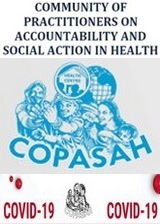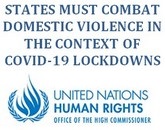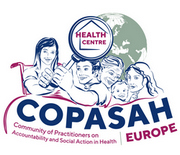
Since 2009, the Association ESE has been continuously working in the field of promotion of health care for mothers and children and accordingly, so far it has submitted several proposals for measures to increase the coverage of Roma children with immunization and preventive health services. ESE has been implementing the activities in this field together with three Roma civil society organizations.
Taking into consideration the subject of our interest and the objective of the project “Set-up of an integrated system for health care for mothers and children to improve the health outcome in R. Macedonia“, which is implemented by the Ministry of Health, we prepared an analysis regarding the program and financial implementation of the project. The analysis was made in order to assess the impact from this project with regard to the improvement of health care for mothers and children.
More specifically, this project is financed through the grant provided by the Kingdom of Netherlands (grant ORIO) and aims to overcome the following areas of concern, which are determinate by the Ministry of Health:
– the average coverage with vaccination in R.Macedonia accounts for about 95%, which is considered low compared to the European average, which accounts for 100%. The biggest problems related to vaccination in R. Macedonia occur in the poor, Roma and rural areas, where the vaccination coverage is below 80%.
– Macedonia ranks second highest in Europe in terms of the birth rate; However, the perinatal and infant mortality rates are the highest in Europe.
– the level of health care in the immunization departments is below the standards.
– in R. Macedonia, one patronage nurse is assigned for 5.000 people. Furthermore, insufficient importance is given to the patronage nurses in the health system and they face a shortage of equipment and vehicles.

The main purpose of the analysis of the courts in imposing temporary measures for protection from domestic violence is to determine the proceedings of the courts and the need for improvement of the provision of timely and adequate court protection for victims of domestic violence. This analysis is part of the activities of ESE in the field of prevention and protection against domestic violence, which tend to increase the level of efficiency and accountability in judicial proceedings in cases of domestic violence, as well as increase the awareness and familiarity of the public with this issue.
For this purpose ESE perform observation and insight into litigation/court cases and conducted focus groups with women - victims of domestic violence. Additionally, the findings of the analysis were discussed at several individual meetings and one mutual forum with representatives of the Primary Courts involved in the project.
Analysis of the courts in imposing interim measures for protection against domestic violence (MKD)

The guide is intended for victims of domestic violence who need help and support to end the violence in life. Primarily it is intended to provide detailed information on the court procedure for issuing temporary measures of protection against domestic violence, as well as information on support and resources available after reporting the violence. In this direction, this Guide offers a brief and clear description of the steps that the victim should take with the initiation, during the proceedings and after the issuing of temporary measures of protection against domestic violence. Additionally, the guide provides basic information about criminal proceedings initiated against the perpetrators of domestic violence and, most importantly, the method described is the preparation of a plan for personal safety and planning steps that need to be undertaken by the victims in the event of risk for them and their loved ones.
Guide for interim measures of protection against domestic violence (MKD)

General lack of data on the health status, health determinants and access to health care among Roma people, respect for human rights in health care and national legislation’s alignment with international standards on protection and exercise of health-related rights in the Republic of Macedonia imposed the need for the present baseline study to be developed.
Roma minority in RM is marginalized on multiple grounds and lives in more unfavourable social and economic conditions compared to the general population. Lack of health statistics segregated by ethnicity, as well as absence of relevant research studies conducted and developed by competent state institutions, resulted in the fact that data on these conditions among Roma people are solely based on individual/isolated knowledge about the situation in the field and on research reports that are limited in scope and coverage, developed by civil society organizations. Due to these reasons, ESE - supported by the Foundation Open Society – Macedonia and the Open Society Foundations – New York – decided to develop this research study on Roma health that would serve as baseline data for monitoring and comparing the situation of Roma people in the Republic of Macedonia.
This baseline study relies on data obtained by means of desk research and analysis of relevant documents and data collected with the survey research conducted on a selected sample of Roma people and members of other ethnic communities living in their vicinity.
We are all human: Health care for all people regardless of their ethnicity

Distinguished chair person and Permanent Missions representatives, I would like to thank you for the opportunity to address you on behalf of Association for Emancipation, Solidarity and Equality of women-ESE.
Following the positive practice of monitoring and reporting on human rights to different Human Rights bodies, ESE as initiator of an informal ad hock coalition comprised of 10 civic organizations with proven expertise on protection of human rights and health right of different marginalized groups, prepared Joint submission on health for the second reporting cycle of R. of Macedonia within the Universal Periodic Review. I would like to stress the relevance of submitted Joint submission, whereby we indicate the problems and recommendations for improvement of the health of eight marginalized groups. Copies of the Joint submission on health are printed and are at your disposal. The addressed statement will cover issues related with health rights of following marginalized groups, which we believe are of utmost priority: health of Roma people, women, people with intellectual disability and victims of human trafficking, and my colleague from Coalition for Sexual and Health Rights of Marginalized Communities will present the situation of health rights of LGBT population, drug users, sexual workers, and people living with HIV/AIDS.
Statement Universal Periodic Review
November 2013































